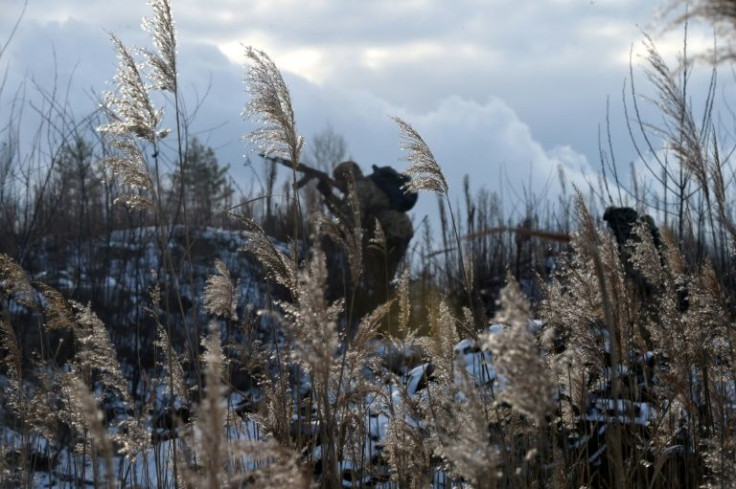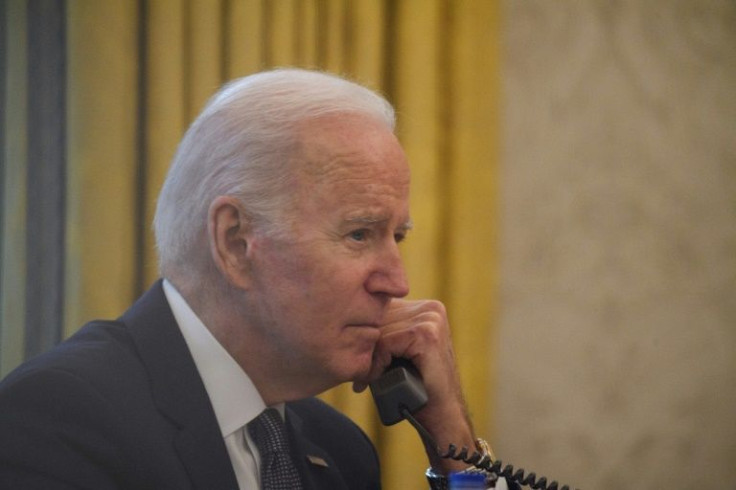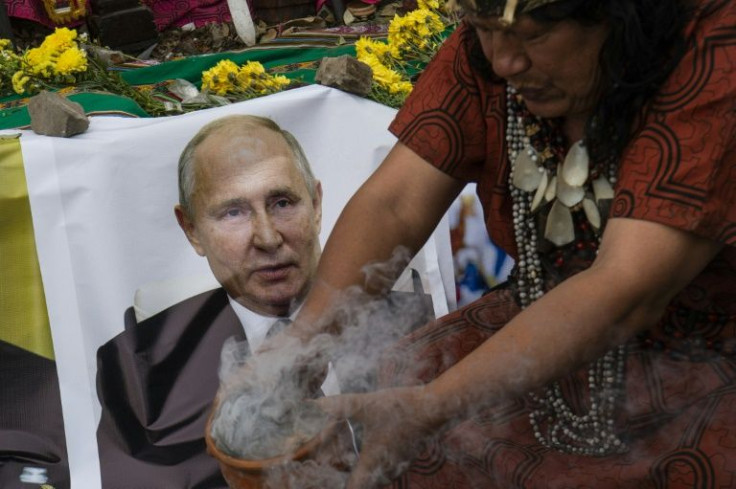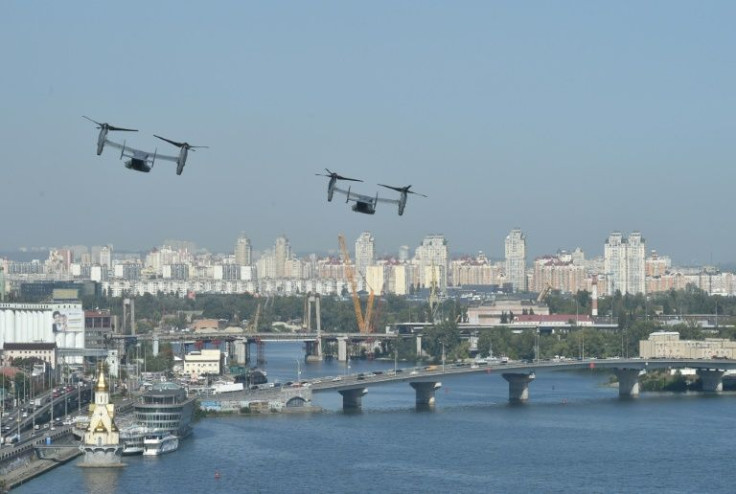Biden Strategy On Ukraine - Talks But Clear Costs For Russia
From severing Russia from the world's banking system to further arming Kyiv, US President Joe Biden is hoping threats of painful consequences will deter his counterpart Vladimir Putin from invading Ukraine.
With tens of thousands of Russian troops amassed on Ukraine's border, the Biden administration has accepted talks in Geneva next week with Moscow which has proposed agreements to limit NATO's expansion.
US officials say they are willing to discuss concerns. But few see the Biden administration as interested in grand agreements, with its objective instead changing Putin's calculus and, at best, bringing greater stability to relations.

Underlying the approach is a threat to impose on Putin, in Biden's words, "sanctions like he's never seen" if he encroaches further into Ukraine, where Russia already backs an insurgency that has claimed more than 13,000 lives since 2014.

Bill Taylor, the former US ambassador to Ukraine, said the main idea was to convince Putin that the costs would be "very high" to an invasion.
"The whole idea is to make it clear to Mr. Putin that he has a choice," said Taylor, now vice president for strategic stability and security at the US Institute of Peace.
One immediate measure would likely be sanctions against Putin's inner circle and their families, depriving them of the right to travel or keep money in the West.
Germany has indicated that the cost of a Ukraine invasion could be ending Nord Stream 2 -- the gas pipeline from Russia that is nearly complete despite years of criticism from the United States and Eastern European nations.

One far-reaching option mulled in the West would be cutting Russia off the SWIFT network that connects the world's banks, a step earlier taken against Iran but not attempted against a major global economy.
But action through SWIFT, based in Belgium, would inevitably hurt third-nation businesses and would be unlikely to gain global consensus unless Russia brazenly defies warnings.
"It's not cost-free by any means. But the big loser in that decision will be the Russians," Taylor said.

Matthew Rojansky, director of the Kennan Institute at the Woodrow Wilson International Center for Scholars, said that Russia had already inured itself against some economic pressure since 2014 when the West imposed sanctions over its seizure of Crimea.
But he said the Biden administration had been effective by communicating directly to Russia that there would be inevitable and severe consequences.
"You don't want a big, dark, scary cloud but then you're not sure the probability that the storm is coming. You want 100 percent probability of a specific lightning strike," he said.
"No one ever has ever doubted that the United States can hurt Russia economically. The question is, does that work to change Russia's behavior?
"History has taught us that the only chance it has in working is as a threat in advance. If you do it to them after they've already invaded and annexed Crimea, you're not going to get them to undo that."
Some hawkish members of Congress say Biden should have already imposed sanctions as a consequence of moving troops.
Russia, which insists that the United States pledged not to expand NATO after the Soviet Union's collapse, has sought guarantees that the alliance will not accept Ukraine or establish bases in more former Soviet republics.
Western officials say that Russia cannot dictate to Ukraine whether to join NATO. But European partners in NATO, which will also meet with Russia next week, have made clear they are unlikely to accept Ukraine's accession.
Rojansky said that the United States needed to be careful not to take the very actions behind Putin's unease such as moving on NATO.
But Biden, who has ruled out sending troops to Ukraine, could share more intelligence with Kyiv, send forces to NATO nations bordering Russia or even arm irregular Ukrainian forces batting Moscow, Taylor said.
"So if he decides to invade, he's going get exactly what he doesn't want," Taylor said of Putin.
"He should be deterred from doing this. But will he be? Only one man can answer that question."
© Copyright AFP {{Year}}. All rights reserved.





















